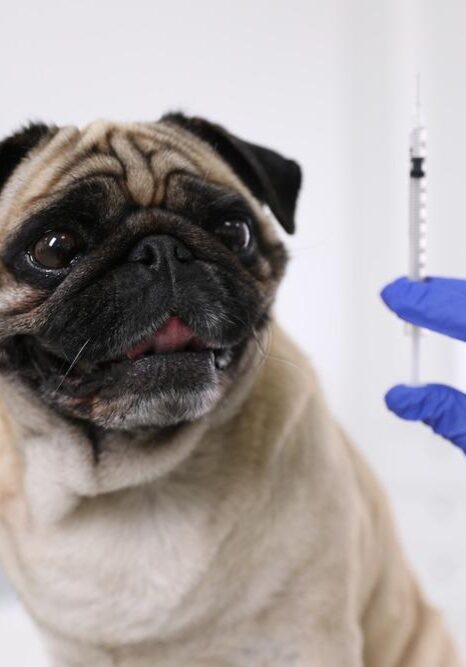
City Vet Services
Pet Vaccinations
All pets should be fully and properly vaccinated at the appropriate age.
Vaccinations against many serious and potentially life-threatening diseases in pets have been available for many years.
These vaccines are very effective and safe and their widespread use has significantly reduced the prevalence of certain diseases and improved the health of pets in general.
Travelling Abroad
Under most circumstances dogs, cats and ferrets travelling abroad will need to be vaccinated against rabies – for further information please see the Pet Passport page.
Other Services
We Have Vaccines For...
Puppies may be given vaccinations at as early as 6 weeks of age. It is essential to repeat any vaccination done before 10 weeks old. The next vaccination should be given at 10 weeks or older as a puppy’s immune system may be unable to adequately respond to vaccination before this age. Two vaccinations are usually required 2 to 3 weeks apart. Under some circumstances best practice may require an additional third vaccination.
During your puppy’s visit for its first vaccination it will be given a thorough examination by one of our veterinary practitioners to ensure it is healthy and well, and it will also be checked for external parasites. The visit is an opportunity to ask about toilet training, nutrition, worm treatment and exercise, etc., children are also welcome to ask questions.
Annual booster vaccinations are essential to ensure continual protection as the immunity given by the initial vaccination will begin to wane if it is not boosted annually. This is especially important in dogs over 7 years of age as their ageing immune system is less well able to protect them from disease.
Vaccination protects against the following diseases:
- Canine Distemper
- Canine Adenovirus Type 1
- Canine Adenovirus Type 2
- Canine Parainfluenza
- Canine Parvovirus
- Leptospira canicola
- Leptospira icterohaemorrhagiae
We also strongly recommend vaccination against Canine Cough by a single intranasal application of Bordetella bronchiseptica.
Canine Cough is a highly infectious disease which can be easily picked up by contact with infected dogs. The main signs are a harsh hacking cough with gagging or retching which resembles having something stuck in the throat.
An annual booster is also required.
Kittens may be vaccinated from 9 weeks of age. Kittens should have a course of two vaccinations given 3 weeks apart.
At your kitten’s initial vaccination, it will receive a thorough clinical examination, checking it for any external parasites. We will also answer any questions you may have and give you information on routine worming, toilet training and nutrition.
A further booster vaccination is required 3 weeks later. This booster vaccination is highly important to further boost your kitten’s immunity and to protect them against potentially fatal diseases effectively.
Annual booster vaccinations are essential to ensure continual protection as the immunity given by the initial vaccination will begin to wean if it is not boosted annually.
This is especially important in cats over 7 years of age as their ageing immune system is less well able to protect them from disease.
Vaccination protects against the following diseases:
- Feline Vaccinations protect against:
- Feline Leukaemia
- Feline Panleucopenia
- Feline Calici Virus (Cat Flu)
- Rhinotracheitis viruses (Cat Flu)
- Chlamydophilia felis
Rabbits should be vaccinated at 10 to 12 weeks of age. They only require one initial vaccination and an annual booster vaccination.
Diseases:
- Haemorrhagic Viral Disease (HVD)
- Myxomatosis
Ferrets require vaccination at about 12 weeks of age and a booster vaccination every 18 months.
Diseases:
- Distemper